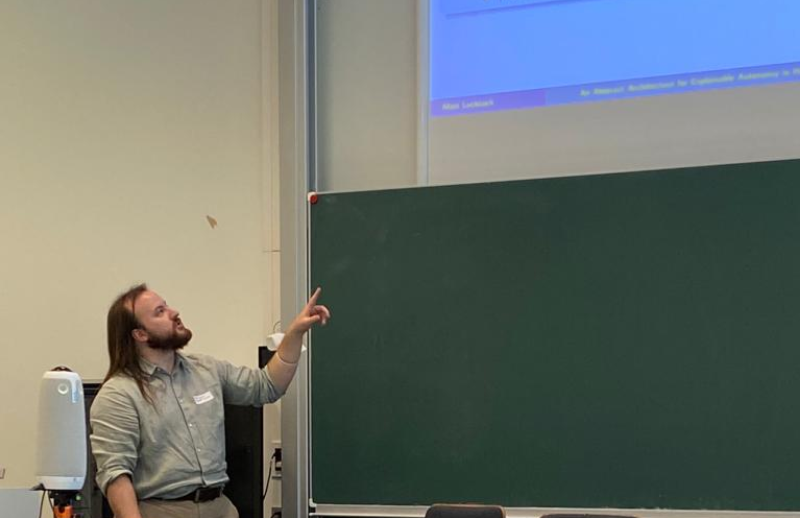Tales of Travel
After the travel I talked about in my last post, there has been a sudden rush of overseas travel. This was a conference visit, a project meeting, and a pair of workshops. One thing that linked all of these trips was that is as far too hot. Now, I’m usually too a little too warm but this was different becasue it was during a series of heat waves in Europe that included the UK recording a top temperature of 40.3℃. Of course, the UK is not set-up for this kind of temperature and the knockon effects included closing one of the main North-South train routes in England.
The heat (and the implied climate crisis) aside, it was nice to be travelling to conferences again. I got to see some friends that I’ve not met up with in a few years, and see some face-to-face talks – though I’m pleased to see that some venues are continuing with a hybrid approach to accomodate the widest possible set of attendees.
integrated Formal Methods: Lugano
At the beginning of June I got to visit the integrated Formal Methods (iFM), which was held in Lugano, Switzerland. I think iFM is my favourite formal methods conference becasue it feels so friendly and often has interesting example applications. I think the integrated part of the title brings either interesting combinations of methods or interesting applications. Plus, it was very intersting to get to visit Switzerland for the first time, too.
In my last post I talked about my trip to my first confernece visit since The Event, to REFSQ. That trip was also the first time I had been to that particular conference, this trip was full of familiar faces. I presented the last paper I wrote during my PhD at iFM 2016 (Reykjavík) and it went really well, so I think that gives me a very rosey view of iFM.
The other first for this trip was that I was a session chair at iFM. This essentially involves introducing each speaker to the audience, facilitating the discussion after the presentations, and ensuring that the session runs to time.
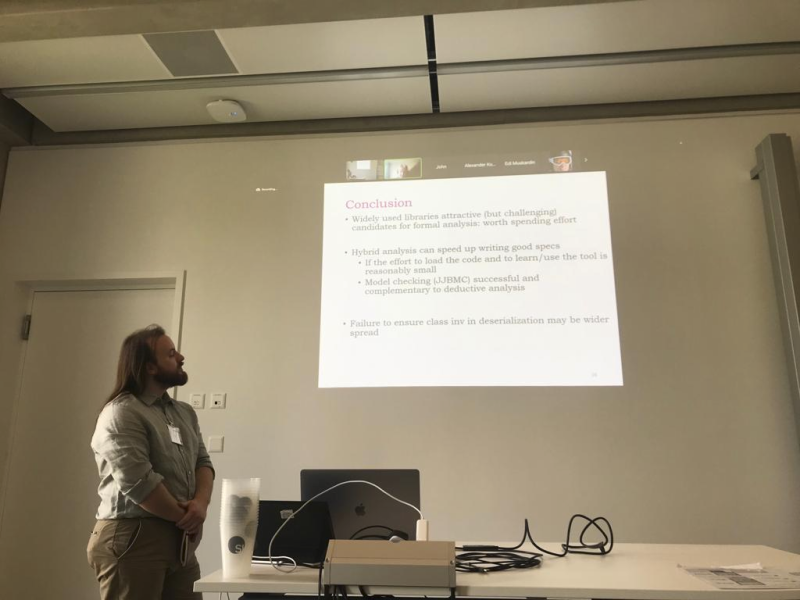
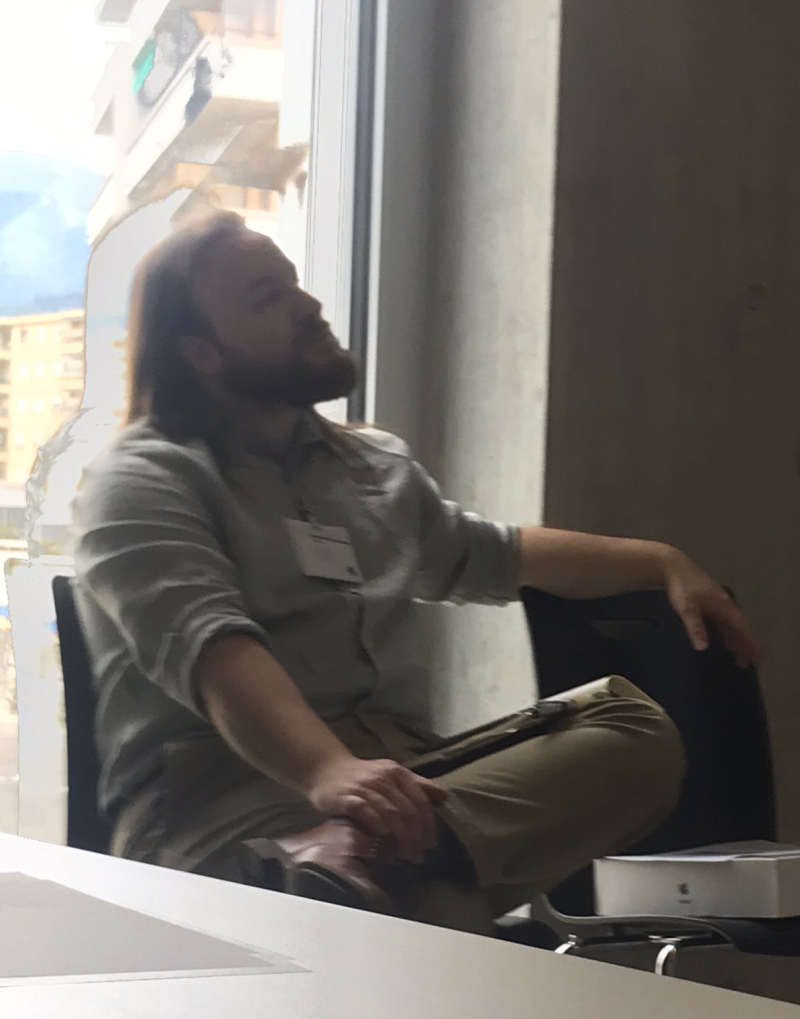
I run a small academic workshop with a colleageue, so I’ve chaired sessions like this before (both in-person and virtually) but chairing a session at iFM felt different. Like I said, I have a soft-spot for iFM as a conference, so it was a proud moment to chair a session there. It felt like another little milestone on the way to being a ‘proper’ academic. Hopefully I did a good job of it, I have my fingers crossed that I did.
Also, the views in Lugano were amazing…
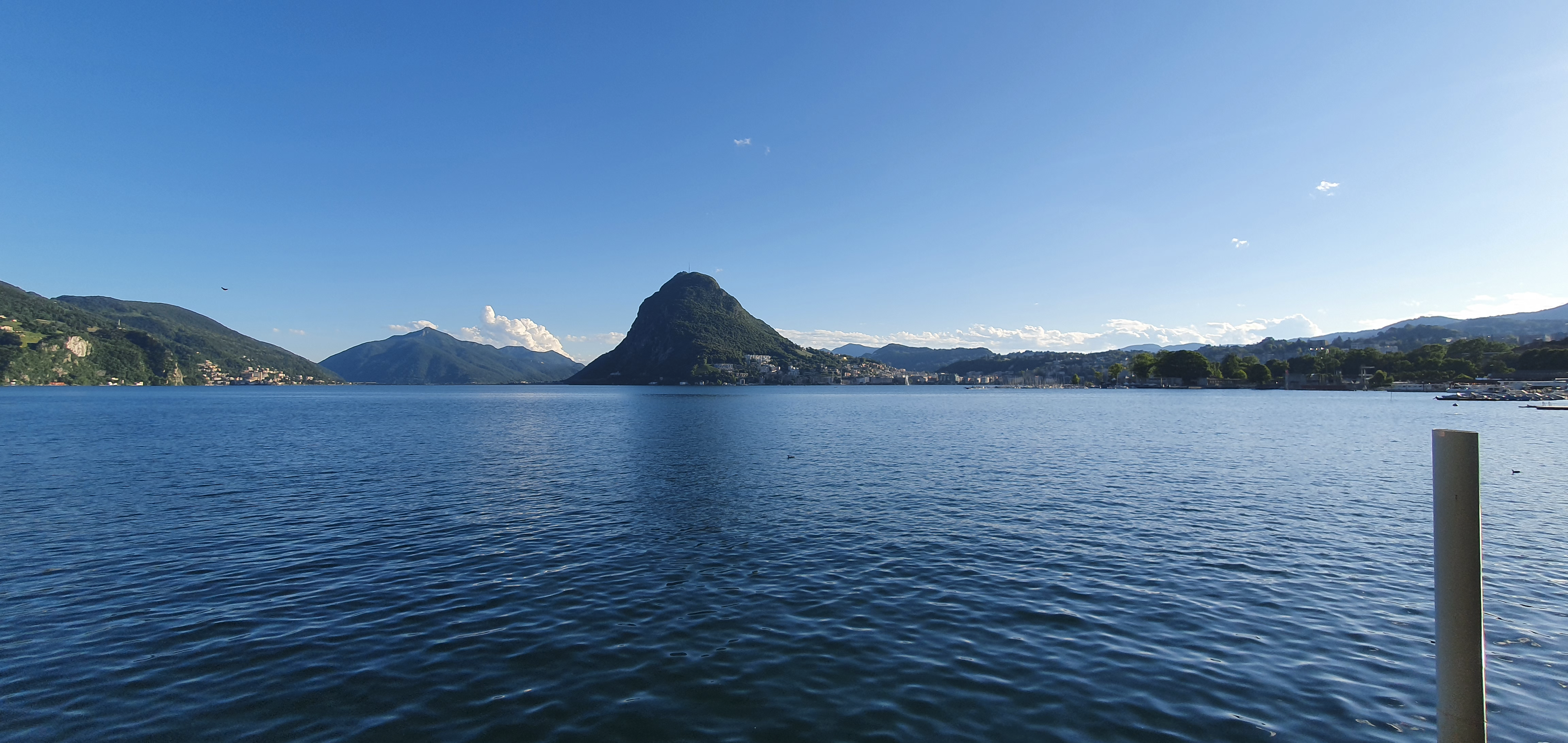
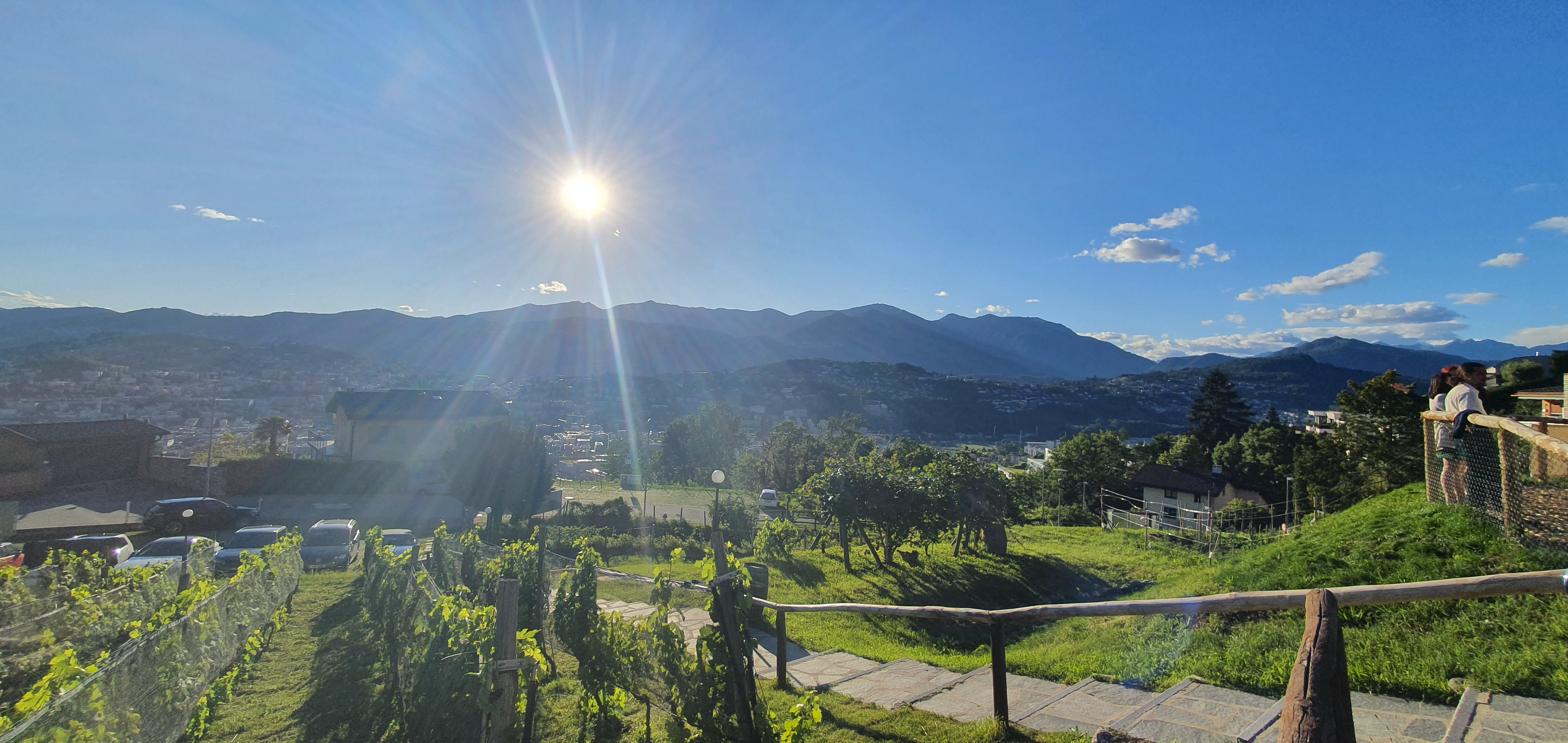
Project Review: Gothenburg
After a very quick turnaround, the end of June saw me flying off again This time, I was visitng Gotehnburg for a review meeting for the VALU3S project (the project that I’m apost-doc on). This was one of the Nordics I hadn’t visited, so I made sure I brought some kronor home with me to add to my little collection.
The previous project that I was a post-doc on had annual reviews, but they were not the big ‘all-hands’ affairs of this project. Every partner organsiation had to be represetned there. There were presentations from each of the Work Packages, which were practied on Day 1 and then delivered to the project reviewers on Day 2. Day 3 was Demo Day, where the work-so-far and plans for the tools and techniques that the project is developing were demonstrated. Bascially, it was like a big poster session…but with more laptops and screens…and a distinct lack of wine.
Luckily I got to go with a colleague so we had two sets of notes and two people to do the demonstrations. Also, we both got to meet one of our industrial partners for the first time. We’ve been working with, and chatting to him, for about 18 months but hadn’t met him before.
The whole review process initially felt long-winded and sort of overblown. However, I could see the point of it all, after the reviwers delivered their initial feedback to us in person. It was like it had been a group interview, with the verdict delivered straight after. I can imagine this being a lot more nerve-wracking for the people higher up in the project’s management. For someone at my level, it was very interesting to see the sorts of things that were praised and the improvements that were suggested. I think it as especially useful to hear the feedback first-hand, so that I could pick out what really applied to us. On the previous project, the feedback trickled down to us post-docs eventually, and it wasn’t clear how specific to us or our group it was.
The travel to Gothenburg was another first, I flew via Brussels (I’m not counting it as visiting Brussels, obviously) and was slightly, ridiculuously please to see…
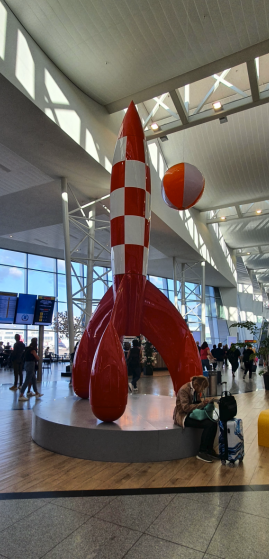
The flights were uneventful, and I got home safely. But then…
Disater Strikes

So far, during The Event I had managed to avoid getting ill. I’m not sure if caught Covid during the review meeting or on one of the flights.
Thankfully, I live in a country where I was able to be vaccinated three times already so the symptoms were mild. Still, it meant that I wasn’t up to much for about a week and I spent a lot of time asleep. I’ve since receovered, almost completely. The only thing that remains is a tight/dry throat and chest, with an occasional cough. I don’t remeber having this background cough before I got ill, so I’m pretty sure this is a longer-term symptom. I’m hoping it goes away eventually, but I know I got off lightly.
AREA Workshop: Vienna
The next trip, near the end of July, was to Vienna (another first, tick) for a workshop called Agents and Robots for reliable Engineered Autonomy (AREA), run by some friends of mine. Travelling to this workshop was made a little easier by already being a littler closer than usual to Vienna: relatively nearby, in Garda (northern Italy). The travel was slightly hampered by having been to a wedding the day befre (hence being in Italy). However, we (I was travelling with two of the organisers) did eventually make it to Vienna, after much delay.
One funny thing about this trip was that I was the closest thing that our group had to someone who spoke German…despite me really not speaking much German at all. I was able to thank people, say yes and no, and understand basic directions (a in “left” and “right”); but apart from that, my defualt was to (badly) ask if they spoke English. I was able to decipher a few menus, though, so that’s useful I suppose.
Not only was this a trip to see the first in-person edition of the AREA workshop, I was also there supporting a student, Dara MacConville. I had proposed a project about exploring how CSP could be used to write a plan for simple robot behaviour, using the turtle package in Python as a proxy for a simple robot. Dara is technically supervised by my boss. The PhD programme that Dara is on requires him to do an individual project, and he picked mine.
I was really pleased with this chance to get some experience in supervising a student, and it was nice that my project was intersting enough to be picked. Dara build a toolchain that checks the CSP plan against a model of the turtle package and of the grid-world that the user has input. If the checks pass, then the toolchain outputs and runs the Python code. Then we guided him through writing a paper, which he presented at AREA (both firsts for him).
Hopefully, we will be able to extend this work for a special issue joruanl paper. In the meantime the paper, “Modelling the Turtle Python library in CSP” is available online, Open Access:
RE4ES: Oldenburg
The final trip was to another workshop, run by another friend of mine. Back to a German-speaking country, so that I could practice my stumbling German speaking.
This workshop was called Requirements Engineering for Explainable Systems (RE4ES), it was attached to the Requirements Engineering conference so it should have been in Melbourne, Australia. However, the oranisers (and, as it turned out, all but two attendees…) were from German institutions, so they had arranged a ‘local hub’ in Oldenburg.
Here I was presenting a paper that I wrote with some colleageues – including Hazel Taylor who is a PhD student at the University of Manchester and travelled to Oldenburg too – based on some rough ideas about autonomous systems providing explanations and trying to present an architecture that could facilitate that. It was a short paper, that I didn’t think had enough novelty (or substance) to be accepted, but it was so there we went.
The workshop was interesting, because it was a mixture of AI/autonomy researchers and requirements/software engineering researchers. So it was great to see my friend again, and see the papers being presented in this interesting mixture of research areas. In another first (the final first, I promise) I had been writing a paper with Hazel for months and yet not met her, all it took was a workshop publication for us to finally get to chat in person. (And all it took was driving, two flights, a tram, a train, and then a bus, to finally get us to the workshop!)
It had been a while since I’d given a prestnation about a paper, so I was probably due some practice. That, plus me being the first author and Hazel not wanting to do it, sealed the deal!
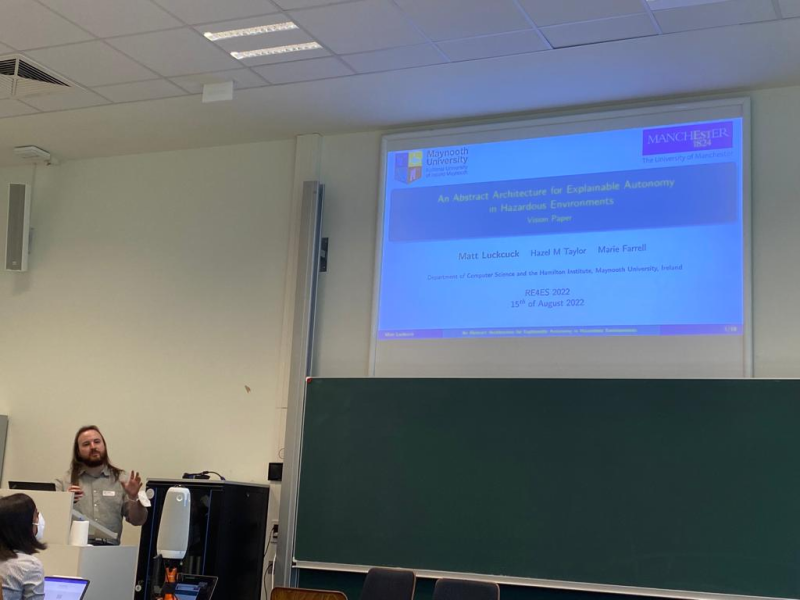
And, as these picture show, I’m still a fan of waving my hands around as I talk.
